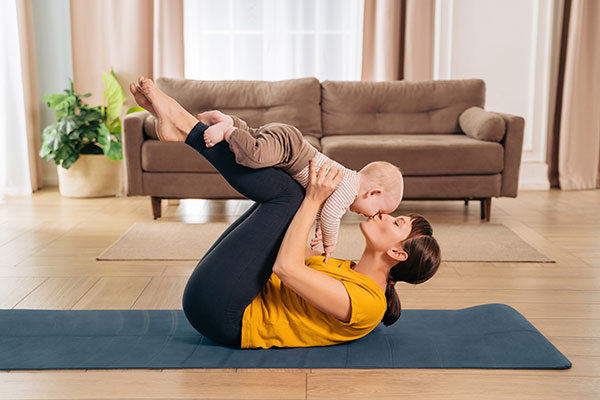Regaining Bladder Control After Childbirth

Childbirth is an extraordinary experience, but it can sometimes lead to unexpected changes in your body, such as difficulty controlling your bladder. This is a common issue for many new mothers, and it’s often due to the physical changes that occur during pregnancy and delivery.
At North Pointe OB/GYN in Cumming, we understand the challenges of postpartum recovery, and we’re here to help you regain your bladder control with confidence and care.
Why Does Bladder Control Change After Childbirth?
Bladder control issues, also known as postpartum urinary incontinence, are often caused by the pressure and strain placed on the pelvic muscles during pregnancy and childbirth. During pregnancy, the growing uterus puts pressure on the bladder, and the pelvic floor muscles that support the bladder, uterus, and bowels can weaken or stretch during delivery, especially in cases of prolonged labor or difficult births. These muscles may take time to recover, and in some cases, they may not fully return to their pre-pregnancy strength without some support.
There are two main types of postpartum incontinence:
- Stress incontinence: Leaking urine when sneezing, coughing, laughing, or lifting heavy objects due to weakened pelvic floor muscles.
- Urge incontinence: A sudden, strong urge to urinate, sometimes resulting in leakage before reaching the bathroom.
Studies show that up to 38% of new mothers experience some form of urinary incontinence after childbirth, though symptoms often improve with time and appropriate care.
Steps You Can Take to Regain Bladder Control
Regaining control is possible with a combination of lifestyle changes, exercises, and medical support when necessary. Here are some effective ways to help improve bladder function after childbirth:
1. Strengthen Your Pelvic Floor Muscles with Kegel Exercises
Kegel exercises are one of the most recommended methods for strengthening the pelvic floor muscles. These exercises involve contracting and relaxing the muscles that support the bladder, uterus, and rectum. To perform a Kegel exercise:
- Imagine you’re stopping the flow of urine mid-stream.
- Squeeze and hold the pelvic muscles for a count of five, then relax for five.
- Aim for 10–15 repetitions, three times a day.
Kegel exercises can be done anytime and anywhere, making them an easy addition to your daily routine. With consistent practice, many women notice improvements in bladder control within a few weeks.
2. Maintain a Healthy Weight
Excess weight can place additional pressure on the bladder and pelvic floor muscles, making it more challenging to regain control. Losing any extra weight gained during pregnancy can relieve some of this pressure and support bladder function. Speak with your OB/GYN about a postpartum-friendly exercise and diet plan that suits your needs and lifestyle.
3. Adjust Fluid Intake and Bladder Habits
Managing fluid intake and practicing bladder training can also help reduce symptoms of incontinence:
- Limit bladder irritants: Reduce your intake of caffeine, carbonated drinks, and acidic or spicy foods, as these can irritate the bladder and increase the urge to urinate.
- Practice bladder training: This involves gradually increasing the time between bathroom trips to train the bladder to hold more urine, which can reduce the frequency of sudden urges over time.
4. Consider Pelvic Floor Physical Therapy
In some cases, professional assistance may be beneficial. Pelvic floor physical therapy is a specialized form of therapy where a trained physical therapist guides you through exercises and techniques to strengthen your pelvic floor muscles and improve bladder control. This is especially helpful for women who may have experienced more severe muscle trauma or damage during childbirth.
5. Consult Your OB/GYN for Medical Options
If lifestyle changes and exercises don’t provide sufficient relief, consult your OB/GYN about other treatment options. North Pointe OB/GYN offers a variety of medical solutions for urinary incontinence, including:
- Medication: Certain medications can help reduce the urge to urinate and improve control.
- Minimally invasive procedures: In some cases, minimally invasive procedures can provide lasting relief for women struggling with severe incontinence.
Our team at North Pointe OB/GYN can help you explore the options that best suit your health and recovery goals.
Supporting Your Journey to Full Recovery
It’s essential to remember that postpartum recovery is a gradual process, and regaining bladder control after childbirth is a common challenge for many new mothers. At North Pointe OB/GYN in Cumming, we’re here to support you every step of the way. Contact us today to schedule a consultation and learn more about your options for managing postpartum incontinence and restoring your confidence.


